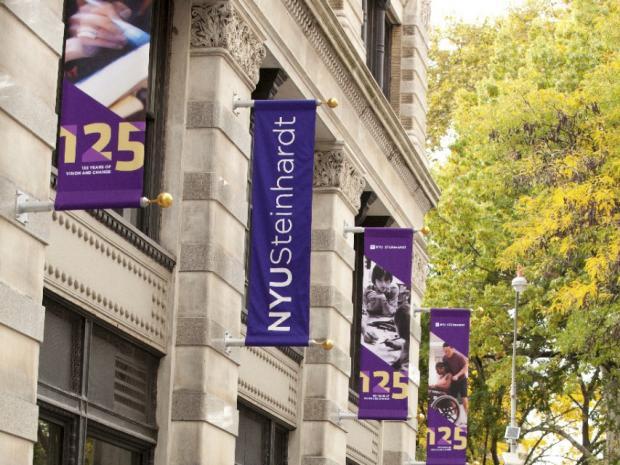Steinhardt’s Plan to Foster Startups
Steinhardt teamed up with NYC Alley to create a new space for students and faculty to pursue education and technology.
October 17, 2016
After a summer spent renovating an old computer lab in the NYU Education building, the Steinhardt School of Culture, Education and Human Development has opened a new space for students, faculty and startup companies to support their ventures around education and technology. The school partnered with Alley, a co-working space company with offices around the city, to design and manage the space.
Vice Dean for Academic Affairs at Steinhardt Ted Magder said the space was created to provide faculty, students and private companies all interested in technology and education an opportunity to more easily collaborate and develop their work in these fields.
“We wanted Steinhardt to be very much at the center of all of the conversations and energy in New York City that is taking place around technology and education,” Magder said. “There is a very large sector of startups in the city and there are a lot of individuals in this city that are interested in technology and education, but there’s no place in New York City where faculty, students and private companies have been able to come together to focus on technology and education.”
Magder said that while Alley was not at the forefront of the initiative, its primary involvement in designing and managing the location has been crucial to creating the space.
“Alley’s role has been to advise on designing the space and advise on the day-to-day management of the space because Alley has run incubators in the city for a number of years,” Magder said. “We wanted to talk to someone who had done this repeatedly.”
The space is open to all of NYU, as well as startup companies outside of the university working in conjunction with Steinhardt’s StartEd Incubator and Edtech Accelerator.
“The Accelerator is a four month project where we, together with our partner StartEd, having identified nine startup companies that are in the Edtech sector and are given space on the campus,” Magder said. “They are all working on nine different and exciting educational technology ventures and offer internship opportunities to students, and work with our faculty.”
All the members of Steinhardt’s StartEd Incubator and Edtech Accelerator will also become members of the Alley community, which gives them access to different events hosted by Alley for startups throughout the city.
CAS sophomore Janice Lu said the space will hopefully provide her an opportunity to merge her interests in education and business.
“I have been participating in NYU America Reads and Counts where I work with third graders a couple of times each week, but I am also interested in business,” Lu said. “To have a space that encourages the crossover between education and entrepreneurship is exciting, and I look forward to seeing the kinds of products that this space helps develop through its work with startups.”
The startup companies working at this space will also offer internships to NYU students.
“Currently, the only way to get our students exposure to innovative companies in the education space is to try to work with companies off-campus,” Magder said. “We had an opportunity to use the space that was unused and we wanted to work with new companies without space and bring them closer to students.”
LS sophomore Alison Rao said that an internship with these types of companies would be rewarding and a great work experience.
“As someone who is looking for internships right now, this is a great opportunity for students interested in education, business and technology to start building their work experience,” Rao said. “I plan on transferring to Steinhardt next year to study MCC but this is a great way to get involved in a Steinhardt project even sooner.”
Steinhardt sophomore Matthew Weigl said that while he appreciates that NYU is creating more internship opportunities through this space, he thinks that it would have been more beneficial to create more practice rooms.
“Steinhardt is always building new space, be that a theater or now for entrepreneurship but there are always constant problems with practice space that seem to go unaddressed,” Weigl said. “I am happy that Steinhardt is looking for new ways to accommodate students and their professional interests and endeavors, but I would like to see the space used for practice rooms, or at least for new practice rooms to be created.”
The space will encourage conversations around education and technology and be another support for entrepreneurial ventures at the university.
“We want to increase the touchpoint between the students, the faculty and other innovators in society. We are a university without walls,” Magder said. “We want students and faculty to have meaningful engagements with everything going on in the city.”
A version of this article appeared in the Monday, Oct. 17 print edition. Email Greta Chevance at [email protected].

























































































































































